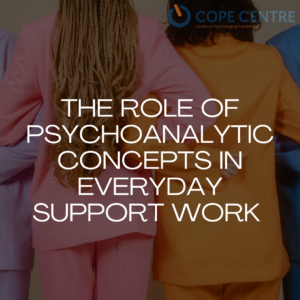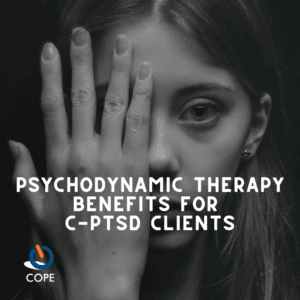The Challenge of Social Disconnection: Overcoming Barriers to Meaningful Connection
The need to belong is a fundamental aspect of human behaviour that deeply influences our motivation for relationships and impacts our mental well-being. However, for some individuals, social disconnection can disrupt this drive—a condition characterized by a lack of interest and enjoyment in social interactions, leading to difficulties in maintaining meaningful relationships.

What is Social Disconnection?
Social disconnection is often misunderstood and requires careful distinction from other interpersonal challenges. For example, individuals with social anxiety may want to connect with others but are held back by fear of rejection or negative judgment. In contrast, those experiencing social disconnection typically prefer solitude, showing little desire to engage socially. While introversion involves a preference for quiet activities, social disconnection reflects a deeper absence of pleasure from personal relationships and a disinterest in forming new connections.
The Impact of Social Disconnection on Mental Health
Social disconnection has profound effects on mental health, often resulting in poorer social functioning and increased feelings of loneliness. Individuals experiencing it may report heightened negative emotions and fewer positive experiences, making it difficult to initiate or sustain relationships. Left unaddressed, social disconnection can also increase vulnerability to depression and other emotional challenges, further isolating those affected.
Key Characteristics of Social Disconnection
According to the Kentucky Counselling Centre (2022), social disconnection manifests through several common behaviours:
- Social Withdrawal: Affected individuals often avoid or disengage from social activities, eventually stopping attendance at gatherings entirely.
- Lack of Relationships: They show little interest in forming or maintaining interpersonal connections, including friendships, family bonds, or romantic partnerships.
- Reduced Emotional Response: Social disconnection can blunt the ability to enjoy shared moments, with individuals expressing muted or negative emotions, even during positive interactions—a phenomenon known as negative affective interference.
- Poor Social Adjustment: Navigating social situations can feel exhausting, leading to disconnection and, in some cases, the need to fake emotions to appear socially engaged.
- Decreased Positivity: A pessimistic outlook can develop, making it harder to feel positive toward people or events.
- Flat Communication Style: Speech patterns may become monotonous, accompanied by a lack of expressive facial cues or enthusiasm in conversations.


How Social Disconnection Complicates Relationships
Social disconnection creates significant challenges in relationships by dulling an individual’s sensitivity to feelings of acceptance and inclusion. Healthy relationships rely on shared joy, mutual engagement, and emotional energy, but social disconnection undermines these essential dynamics, leaving both parties feeling unfulfilled.
While social disconnection often co-occurs with depression, it’s essential to understand that not everyone with depression experiences disconnection—and vice versa. Both conditions, however, involve disruptions in dopamine, a neurotransmitter critical to the brain’s reward system. Low dopamine levels are linked not only to depression but also to other mental health conditions such as schizophrenia, highlighting the importance of early recognition and intervention.
Social Disconnection as a Marker of Vulnerability
Social disconnection is a notable risk factor for more severe mental health challenges, particularly schizophrenia spectrum disorders. The diminished ability to experience pleasure from social interactions can result in social dysfunction, reduced support networks, and impaired judgment. Studies suggest that persistent social disconnection can act as an early indicator of vulnerability to psychosis and other cognitive difficulties. Individuals experiencing disconnection often report strained family relationships and encounter difficulties in everyday functioning, further complicating their recovery.
Seeking Help for Social Disconnection
If you or someone you know is struggling with social disconnection or related mental health issues, seeking professional support is crucial. Organizations like COPE offer specialized care through mental health professionals who understand the complexities of social disconnection and can provide personalized treatment plans. You don’t have to face these challenges alone—support is available to help you rebuild connections and improve your overall mental health.
Conclusion
Understanding social disconnection is essential for recognizing its impact on individuals and relationships. By raising awareness and promoting open conversations, we can encourage those affected to seek the support they need. Fostering a society that values inclusion and connection can help reduce the barriers created by social disconnection and improve the well-being of everyone.
References
Barkus, E and J.C Badcock (2019) A Transdiagnostic Perspective on Social Anhedonia, https://pmc.ncbi.nlm.nih.gov/articles/PMC6491888
Kentucky Counselling Centre (2022) Social Anhedonia: Definition, Common Signs, Levels, and Treatment Options, https://kentuckycounselingcenter.com/social-anhedonia
COPE Centre of Psychological Enrichment
Visit us at 2 Lawrence Avenue, West Perth
📞 (08) 6556 6460
📧 [email protected]


